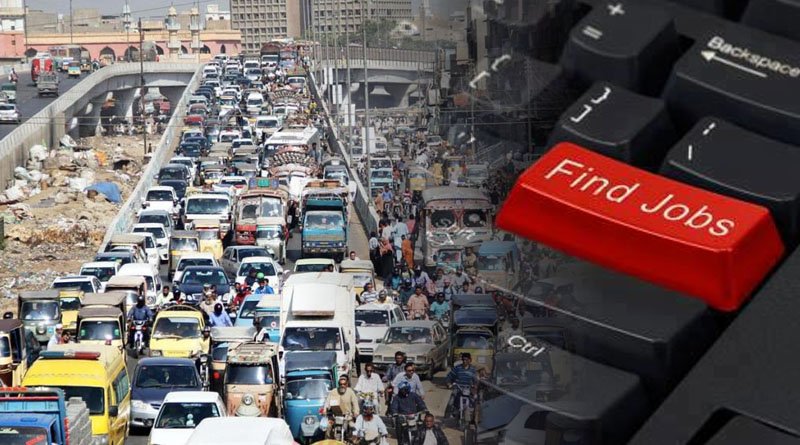In Pakistan, there has been a significant pressure on the job market and urban infrastructure due to the massive influx of people from rural areas.

Rapid urbanization in Pakistan is primarily due to a lack of employment opportunities. People from rural areas move to cities in search of higher paying jobs and better working conditions, according to Dr. Naveed Iftikhar, an urban economist and researcher.
In Pakistan, there has been a significant pressure on the job market and urban infrastructure due to the massive influx of people from rural areas. In order to relieve the pressure and provide young people with employment opportunities, the government must work with the private sector.
The government and private sector working together will contribute to the development of a nation where young people are encouraged to pursue education and training.
Due to a lack of investment in industries that produce jobs, Pakistan has not been able to generate enough employment opportunities to meet demand, despite a growing urbanization.
“As a result, there is a high unemployment rate, especially among young people who are just entering the workforce. Even though they are qualified for better positions, people may be forced to work in low-paying, low-skilled jobs due to a lack of job opportunities. This is known as underemployment, “said Dr. Naveed.
He stated that the informal economy, which was common in many Pakistani urban areas, was frequently characterised by low wages and subpar working conditions.
As a result, he continued, “it becomes difficult for people working in the informal sector to make ends meet, especially given the rising cost of living.”
He said that the government is not able to provide adequate support to the job market. “It is contributing to poverty, social unrest, and economic stagnation,” he said.
The expert claimed that it is difficult for the nation to draw in foreign capital. Starting new businesses and growing existing ones is challenging due to a lack of investment. He continued, “This circumstance has reduced the amount of employment in the nation.”
He said that the government and the private sector must work together to create a more supportive environment for creating jobs and providing education and training opportunities to young people.
The government needs to chalk out effective policies for investment in new industries and improvements in the education and training systems to support business development.
“The government must revise its policy and channel development through statutory measures and a careful implementation process for a well-functioning society. It is important to remember, though, that not every population segment enjoys the advantages of urbanization equally.
According to Dr. Naveed, low-income and informal workers make up the majority of Pakistan’s urban population. These people frequently struggle with poverty, unfavourable working conditions, and restricted access to essential services.
He asserted that in addition to assisting small and medium-sized businesses, which are important engines of job creation and economic growth, the government must invest in infrastructure and services like affordable housing, healthcare, and education.
“Policymakers will have to address the challenges in the education sector and labour market in addition to providing basic services to people. To make urbanization a true boon for employment.”” he told the media.